Sustainability in the Community – All Hands on Deck
Link to the JSE March 2024 General Issue Table of Contents
Logan and Sronce JSE March 2024 General Issue PDF
Abstract: Southern Arkansas University has developed the SOAR Sustainability Conference to spotlight current sustainability-related efforts. SOAR, representing the southern Arkansas region, was added to the conference name to signify the area of emphasis for the event. This spring conference event has been held in April of 2022 and 2023. The 2023 conference included over 50 presenters from academia, private businesses, government agencies, and volunteer organizations. Session topics were aligned with the critical components of sustainability education including anticipatory thinking, empathy, change of perspective, justice, responsibility, and ethics. Surveys were distributed to SOAR conference attendees to gauge their level of attitudes, knowledge, and behavior regarding sustainability issues. Responses were very positive overall, showing gains in attendees’ attitudes, knowledge, and behavior between 2022 and 2023. The behavior category showed the largest annual increase while knowledge gains over the same period were lower. Overall, the SOAR Sustainability Conference has shown success in engaging students and community stakeholders to take part in this effort to address sustainability-related challenges in the area.
Keywords: Sustainability, sustainability education, community, transformation
Introduction
The SOAR Sustainability Conference was developed in 2021 to educate regional campus and community members about sustainability challenges and improvements in southern Arkansas. Additionally, this conference spotlighted sustainability-related efforts by various regional groups, including faculty, staff, students, private businesses, government agencies, volunteers, and community organizations. The southwestern Arkansas region is relatively rural, with agriculture, manufacturing, and timber comprising the market leaders. Prior to this event, sustainability efforts, while existing, were not coordinated or highlighted in any significant way.
SOAR, representing the southern Arkansas region, was added to the conference name to signify the area of emphasis for the event. According to the Bureau of Economic Analysis, the economic growth rate in the southwest area is relatively low compared to more bustling areas of the state, including the northwest and northeast regions. Columbia County, located in southwestern Arkansas, had a 2020-2021 economic growth rate of 3.8%, compared to 8.9% and 6.13% in the northwest and northeast regions, respectively. A large portion of state investment and infrastructure is directed to north and central Arkansas, where populations are larger than in the southwest region. For this reason, one of the goals of the SOAR Sustainability Conference is to bring attention and focus to sustainability efforts in the southwest region.
Southern Arkansas University is a relatively small state college located in Columbia County. The student population of
Southern Arkansas University is approximately 5,100, including undergraduate and graduate students. Around 60% of students are from the Arklatex area, the region where Arkansas, Louisiana, and Texas join together. The university is located in Magnolia, Arkansas, a town of less than 12,000 people. The political climate would be described as a very conservative county, while Arkansas itself is often described as a red state.
Literature Review
The United Nations has developed a series of 17 Sustainable Development Goals (SDGs) to promote peace and prosperity throughout the globe. Goal #4 states the need for an “action-oriented, transformative pedagogy, which supports self-directed learning, participation and collaboration, and problem orientation” (UNESCO, 2017). This focus on quality education will help to build the skills and knowledge to address our sustainability challenges throughout the world.
Sustainability education serves many outcomes, including socialization, career training, and learner transformation and potential development. To achieve these outcomes, learners must feel connected to their emotions from an experience pursuing societal change (Bevilacqua, 2023; Gajparia, Strachan, & Leverton, 2022; Van Kleef & Côté, 2022). This connection is established by fostering an environment promoting change in learners’ knowledge, skills, and societal outlook (Favaloro et al., 2019; Gaffney & O’Neil, 2019; Landorf, et al., 2008; Savage et al., 2015; Wamsler, 2019; Williamson et al., 2023). In addition, group work among learners and interdisciplinary team teaching can be beneficial in showing participants multiple ways to view and approach existing challenges. Because participant motivation is critical for engagement, instructors should plan to motivate those attending and provide a balance of storytelling, social engagement, and problem-solving (Olsson et al., 2022; O’Neil, 2018; Jordan & Sorensen, 2022; Skiles et al., 2022).
A critical set of curriculum components is required to prepare students to handle the breadth and complexity of sustainability discussions and help develop sustainability education competencies. Lozano et al. (2017) explain the role of these competencies in higher education. Moreno Pires et al. (2020) list these curriculum components and discuss various classroom approaches. These components include anticipatory thinking, empathy, change of perspective, justice, responsibility, and ethics. This list can also include uncertainty and tolerance for ambiguity when appropriate. Engagement in a discussion or a project helps the learner to feel involved, and that experience elicits emotions as a result, thus making the activity more memorable and enjoyable (Brink & Wamsler, 2019; Kumar & Mohapatra, 2018). Modifications to the current education system may represent a significant social intervention, potentially leading to a shift in perceptions toward a new sustainability outlook due to increasing awareness of challenges at all levels of public education (Abson et al., 2016; Moreno Pires et al., 2022; Sachs et al., 2019; Wamsler, 2019; Williamson et al., 2023).
Focusing on transformation as part of education in sustainable development requires educators to take on multiple roles. The educator serves as the facilitator and instigator to engage students and create conditions for reflecting on an experience. In addition, educators also act as coaches to encourage learners’ reflections and assessors to provide support and clarity (Gaffney & O’Neil, 2019). Each role is important in shifting from traditional teaching methods to a more holistic approach that empowers the learner to experience, reflect, and enact change based on their values, beliefs, and awareness (Brink & Wamsler, 2019; Kolb, Fröhlich, & Schmidpeter, 2017; Olsson et al., 2022; Wamsler, 2019). Developing a sustainability-based outlook to approach challenges is transformative, fostering a desire to be part of the change one works toward (Abson et al., 2016; Aung & Hallinger, 2023; Landorf et al., 2008; O’Neil, 2018).
Sustainability leadership is developed and strengthened through increased commitments to sustainability in education. This leadership requires knowledge regarding challenges, communication skills, and the ability to establish a dialogue among different groups in a complex setting (Savage et al., 2015). For higher education, in particular, sustainability leadership could potentially reshuffle university practices through changes to the mission and strengthening of stakeholder relationships. Due to the unique organizational structure of universities, a wide range of interests and departmental initiatives occur simultaneously. This organizational makeup allows for small changes in the classroom to expand as student engagement and faculty buy-in grow. Faculty are in a distinctive position to develop and promote sustainability leadership. This bottom-up approach to sustainability leadership can help to empower faculty and staff, which administrators can then adopt to implement across the university. Higher education provides a major role in training sustainability change leaders that can help to bring about the social transformation required to meet current sustainability challenges (Aung & Hallinger, 2023; Favoloro et al., 2019; Jordan & Sorensen, 2022; Kumar & Mohapatra, 2018; Savage et al., 2015).
Several classroom activities, educational programs, and campus-wide events have been held to engage and promote sustainability efforts in education, industry, and society. Savage et al. (2015) discuss the development of a graduate certification program offering intensive discussions and engagement activities over a limited time period, with participating students earning a certificate upon completion of listed learning modules, writing assignments, and collaborative projects. Wamsler (2019) describes creating a course titled “Sustainability and Inner Transformation” that included a behavioral lab and weekly group discussions designed to investigate the role of students’ emotions and transformation for sustainability. Moreno Pires et al. (2022) provide an instructional guide for those teaching sustainability education titled EUSTEPS for Enhancing Universities’ Sustainability Teaching and Practices through Ecological Footprint. This guide offers a learning-by-doing approach for students to help guide sustainability system thinking. Williamson et al. (2023) share the successful launch of the West Virginia Climate Change Professional Development Project, a program designed to train educators and create an engaging climate change learning community. Each pilot program or study received positive feedback from student participants, showing increased interest and enthusiasm for the topic.
The SOAR Sustainability Conference was created based on sustainability education research and pilot programs for class activities, professional development, and community outreach efforts. This conference was designed to spotlight current sustainability-related efforts and provide information on research, production, and outreach in this area. In addition, this conference brings various campus and community groups together and helps create relationships among the participants. As this community expands, collaboration and increased communication will help lengthen the reach of ongoing sustainability efforts in the region. This paper aims to discuss the SOAR Sustainability Conference event, outreach opportunities provided, and survey data results from conference attendees.
SOAR Sustainability Conference
The Rankin College of Business hosted the first SOAR Sustainability Conference in April 2022 on the Southern Arkansas University campus. This regional conference attracted presenters and attendees from academia, private businesses, government agencies, and volunteer organizations. There were 32 presentations offered at the conference, including 50 presenters, 13 of whom were students. Presentation sessions included activities, research findings, career opportunities, conservation efforts, business initiatives, product development, and community awareness. Conference registration overall was 128. Registration was not required for students, and 263 students checked into our attendance management system for at least one session, with many attending multiple sessions. The conference also included a morning keynote speaker and two lunch speakers.
The initial lineup of conference presenters and programs provided a useful model that demonstrated session topics that were popular and engaging as well as those that were not. The second SOAR Sustainability Conference was held in April 2023 using what was learned from the initial conference offering. The event was very similar in size and scope to the previous year. There were 54 presenters, including 19 students, presenting 28 sessions overall. Conference registration included 119 in attendance and over 177 students attending one or more sessions.
The range of sessions offered at the SOAR Sustainability Conference was large, providing an array of topics for participants with varying interests. Topics were aligned with the components of sustainability education, as discussed previously. Presentations provided socialization efforts through discussion panels and networking activities such as Forest Sustainability or Meet Me at the Market. There were industry representatives and informational booths for career training to inform participants of employment opportunities and recruit prospective employers. An Arkansas Advanced Energy Foundation representative gave a presentation titled Create Your Path to a Clean Economy/Sustainability Career, discussing career opportunities in sustainability-related fields. SOAR also enhanced the development of learner transformation through hands-on activities and informative discussions, including sessions for Reclaimed Poetry and Recharge with the Outdoors. Team teaching sessions, such as Quail Forever’s Sustainable Vision and Planning presentation, allowed presenters to combine their skills and experience while encouraging participants to coordinate ideas and efforts during the discussion. Overall, these sessions offered various perspectives and helped foster an environment where learners felt a connection between their educational experiences and their surrounding environment.
Most of the sessions included the critical components identified as necessary for student comprehension of sustainability topics. Including opportunities for anticipatory thinking, empathy, change of perspective, responsibility, and ethics helps develop student understanding given the depth and breadth of sustainability discussions (Brink & Wamsler, 2019; Kumar & Mohapatra, 2018; Lozano et al., 2017; Moreno Pires et al., 2022). Table 1 below provides an example of a session from the conference. The table also lists the critical components involved in the activity, with a brief description of each component.
Sessions such as Electrifying Sustainable Minds and Creating Sustainability by Volunteering helped to strengthen participants’ ability to consider the long-run impact of actions and practices while acquiring empathy for those experiencing adverse effects from environmental change and development. Similarly, presentations such as Composting 101, Sustainable Food Management, and Reuse, Reduce, and Recycle provide a different perspective on sustainability challenges, demonstrating shared responsibility among all community members to be involved and promote positive and ethical change. These components enhance learning as sustainability and help to create a broader and more mindful perspective of the surrounding environment.
Continuous improvement in education suggests that curriculum constantly evolves as challenges and perspectives change in the community. Curriculum changes implementing sustainability are often initiated at the classroom level but slowly expand throughout a department and eventually a campus as student engagement and faculty buy-in improve. These changes to the current education system may represent a significant social intervention to improve awareness of sustainability issues and challenges. An increased focus on sustainability education could potentially lead to a shift in perceptions toward a new sustainability outlook at all levels of public education (Abson et al., 2016; Kolb, Fröhlich, & Schmidpeter, 2017; Moreno Pires et al., 2022; Sachs et al., 2019; Wamsler, 2019; Williamson et al., 2023). The SOAR Sustainability Conference was created to help bring awareness to sustainability issues in the southwest Arkansas region, increasing knowledge among community members and encouraging involvement. The conference attendees included students, faculty, staff, business professionals, government agency representatives, and community members. Students comprised the majority of conference participants or about 80% of the attendees. The breadth of topics was implemented to engage all participants and demonstrate the wide scope of sustainability-related challenges and efforts observed throughout the region.
Survey Results
A questionnaire was employed at the 2022 and 2023 SOAR Sustainability Conference to gauge interest and align the presentation topics with attendees’ interests. The survey is similar in size and scope to the instrument used in Savage et al. (2015) and Wamsler (2019). Attendees were asked to rate each of the following items on a scale from 1-5. For question 1 regarding overall satisfaction with the conference, a survey response of 1 suggests very unsatisfied, while 5 suggests very satisfied. However, the scale provides responses for questions 2 through 7, where 1 is strongly disagree, and 5 is strongly agree. Positive results include responses of 4 or 5 as participants show satisfaction or agreement with a statement. Likewise, negative responses are 1 and 2 with participants selecting unsatisfied or disagree. The survey results from 2023, when compared to those in 2022, indicate increasing interest in the conference and more positive perceptions of sustainability and its importance. There are two explanations for this observed increase in perceptions of sustainability. First, there has been an increased sustainability focus across campus due to SOAR and other local initiatives. Second, this observation might suggest a decrease in casual attendees who are less focused on sustainability and its challenges for the region.
Participants were comprised of current students and non-student groups. Non-student participants were mostly comprised of researchers, public administrators, community members, and industry professionals with an interest in sustainability and were expected to demonstrate relatively high levels of knowledge and positive attitudes. In addition, a large portion of the sample was made up of students attending by mandate, for bonus points, or out of personal interest. While the data cannot be sorted between students and non-students, the aggregate results suggest that positive attitudes and high levels of knowledge were common across the sample.
The goal of the SOAR Conference was to improve participants’ understanding and outlook and to encourage changes in their planned behavior by implementing sustainability-related approaches after attending the event. The majority of students attending the conference were business or science majors. For future conference offerings, the SOAR committee will work to improve outreach to other majors, such as education and liberal arts. Presenters from these specific areas will also be invited for specific sessions to improve student engagement across the campus.
The SOAR Sustainability Conference survey questions and response rates for each year are shown in Tables 2 and 3. There were 98 respondents who completed the survey following the 2022 SOAR conference and 85 respondents in 2023.
Following the method employed in Teather and Etterson (2023), survey questions are divided into three categories: attitude, knowledge, and behavior. Questions 1-3 address respondents’ attitudes regarding sustainability and its role at the conference. Questions 4 and 5 measure participant knowledge of sustainability challenges and initiatives in the region. Lastly, questions 6 and 7 gauge participants’ planned behavior to engage in efforts to improve their own sustainability. Survey results for each question are discussed below.
The attendees’ attitudes have become more positive since our initial conference offering in 2022. Overall satisfaction with the conference improved, as shown by the results of question 1. Participants selecting positive responses, including categories 4 and 5, or “satisfied” and “strongly satisfied,” comprised 80.6% of 2022 responses and 96.4% in 2023 for question 1. Question 2 regarding participation in future events shows much smaller increases, with 75.5 % selecting positive responses for 2022 compared to 78.5% in 2023.
Positive responses for question 3 showed strong gains regarding one’s appreciation for the importance of sustainability after attending the conference, as positive responses increased from 78.6% in 2022 to 92.8% in 2023. After attending the SOAR Sustainability Conference, these results show an improvement in participants’ attitudes regarding sustainability in the region. As stated earlier, participants are likely biased towards a higher appreciation of sustainability. Attendees’ responses show they were more satisfied and wanted to participate in future events, suggesting that conference offerings align well with what participants want to see. Responses to questions 1 and 3 showed increased sustainability awareness and perceived importance following the committee’s implemented improvements based on participant feedback from 2022. Figures 1, 2, and 3 show these results graphically.
Participant knowledge has also improved in our survey based on the responses to questions 4 and 5. Question 4 demonstrates a small improvement in understanding of sustainability challenges, as results increased from 84.7% in 2022 to 86.9% in 2023. Similarly, positive responses rose slightly from 85.6% to 90.5% for question 5 between 2022 and 2023. This observation suggests that most attendees are relatively knowledgeable about sustainability challenges and efforts in the southwest Arkansas region. In this case, the modest effects observed align with expectations but demonstrate evidence of the conference boosting participants’ knowledge. Results are shown in Figures 4 and 5.
Participants’ behavioral expectations regarding sustainability have also increased over this time. Positive responses for question 6 in 2022 suggest that 68.3% of attendees reported identifying an opportunity to behave more sustainably, while the positive response rate on the same question in 2023 rose to 89.3%. Likewise, 63.5% of 2022 conference participants selected positive responses to question 7 regarding sustainable opportunities for businesses and organizations, which increased to 83.3% in 2023. These findings show significant increases in participant expectations about their own behavior, signaling a more positive outlook on sustainability issues and the identification of behavioral changes with the opportunity to impact the environment positively. As seen in Tables 2 and 3, questions regarding behavioral expectations showed the lowest initial response rates compared to knowledge and attitude, demonstrating that this category had the largest opportunity for improvement.
Discussion
Responses from our initial survey were positive overall, with increases in questions regarding participant knowledge, attitude, and behavior. Our findings do not show an overall slower growth in the behavior category, referred to as value-action gaps, as seen in Teather and Etterson (2023). Comparing the increase in response rates from 2022 to 2023, the behavior category showed the largest improvement, with a 21 percentage point increase between 2022 and 2023 for question 6. Likewise, question 7 response rates show a 19.8 percentage point increase. The lowest increase in response rates was seen for question 5, where positive responses increased by 2.2 percentage points over time. As suggested previously, participants’ initial knowledge and attitudes were very high, leading to modest gains in these categories following the conference events. Responses in the behavior category were initially low, thus showing relatively larger gains in the survey results. These observations demonstrate the overall effectiveness of this event regarding the positive change seen in knowledge, attitude, and behavior as participants become more mindful of their own actions and seek ways to behave more sustainably in everyday life.
Considering future sustainability event offerings, organizations may consider virtual options for speakers and some attendees. Virtual offerings can reduce costs and improve the diversity of attendees and presenters (Foramitti et al., 2021; Guetter et al., 2022; Skiles et al., 2022). Virtual networking and poster presentation opportunities can be added to provide an engaging conference event, allowing for personal communication and sharing of best practices. Regarding the data analysis, future research opportunities also include sorting survey results between student and non-student groups, allowing researchers to estimate the impact on specific participants in the community.
Conclusion
Overall, the SOAR Sustainability Conference has been a success. Attendance has remained relatively high for both event offerings and will hopefully continue to grow steadily for future events. Plans to encourage further growth include improving our outreach in the community by working with the chamber of commerce and city council to expand awareness of the event. In addition, the SOAR committee will increase the number of hands-on activities and outdoor demonstrations at the event to attract a larger audience. Lastly, student engagement can be improved by increasing the number of student-focused sessions and offering awards to the top performers, such as a student poster contest and regional art competition.
Presenters from academia, businesses, government agencies, community organizations, and volunteers in the region were excited to submit proposals and participate in this event. Additionally, survey response rates were relatively high, showing improvements in attendees’ attitudes, knowledge, and planned behavior. Questions in the behavior category demonstrated the largest improvement relative to attitude and knowledge. The SOAR planning committee will implement improvements for the 2024 conference, using feedback to select relevant sessions and align sessions with participants’ preferences.
Sustainability leadership is developed by engaging community members to help promote innovative approaches to common challenges. The SOAR Sustainability Conference was one of several efforts undertaken by Southern Arkansas University to promote sustainability and provide leadership over the past few years. The university has also created a cross-disciplinary sustainability minor comprised of contributions from science, agriculture, education, and business. Also, efforts are underway across the campus to promote sustainability and provide leadership by increasing recycling, water conservation, reducing paper, using local source providers, and becoming more energy efficient with improvements to buildings such as heating, cooling, and lighting. In addition, the Rankin College of Business has adopted sustainability as an area of interest for AACSB accreditation purposes. This added focus led to the creation of SOAR and has allowed the college to emphasize sustainability throughout the curriculum and in co-curricular activities. Recent changes in the college mission statement also demonstrate a commitment to exercising a more sustainability-centered focus throughout the program. Lastly, this conference provides another way to highlight the decade of research Rankin College of Business faculty have been producing that supports the proposition that environmental sustainability efforts are both customer-driven and performance-enhancing (Bhadauria et al., 2014; Zelbst et al., 2024; Zia et al., 2021).
References
Abson, D. J., Fischer, J., Leventon, J., Newig, J., Schomerus, T., Vilsmaier, U., von Wehrden, H., Abernethy, P., Ives, C. D., Jager, N. W., and Lang, D. J. (2017). Leverage points for sustainability transformation. Ambio, 46(1), 30-39. https://doi.org/10.1007/s13280-016-0800-y
Aung, P. N., Hallinger, P. (2023). Research on sustainability leadership in higher education: a scoping review. International Journal of Sustainability in Higher Education, 24(3), 517-534.
Bevilacqua, E. (2023). The relationship between social life and emotions. Adam Ferguson and sociology. Frontiers in Sociology, 8, 10-27. http://doi.org/10.3389/fsoc.2023.1194280
Bhadauria, V., Toms, L., Green, K., and Meacham, J. (2014). Do green information systems impact performance?” International Journal of Productivity and Quality Management, 13(4), 377–394. https://doi.org/10.1504/IJPGM.2014.062218
Brink, E. and Wamsler, C. (2019). Citizen engagement in climate adaptation surveyed: The role of values, worldviews, gender and place. Journal of Cleaner Production, 209, 1342-1353. https://doi.org/10.1016/j.jclepro.2018.10.164
Foramitti, J. Drews, S., Klein, F., Konc, T. (2021). The virtues of virtual conferences. Journal of Cleaner Production, 294(20), 126–139. https://doi.org/10.1016./j.clepro.2021.126287
Favoloro, T., Ball, T., and Lipschutz, R. D. (2019). Mind the gap! Developing the campus as a living lab for student experiential learning in sustainability. In W. Leal Filho & U. Bardi, (Eds.) Sustainability on University Campuses: Learning, Skills Building and Best Practices. World Sustainability Series (pp.91-113). Springer, Cham. https://doi:10.1007/978-3-030-15864-4_7.
Gaffney, J. L., O’Neil, J. K. (2019). Experiential learning and sustainable development. Encyclopedia of Sustainability in Higher Education, 1(2), 1–8. https://10.1007/978-3-319-63951-2_348-1
Gajparia, J., Strachan, G., and Leverton, K. (2022). Transformation through learning: Education about, for, and as sustainability. Frontiers in Sustainability, 3, 982718. https://doi.org/10.3389/frsus.2022.982718
Guetter, C., Altieri, M. S., Henry, M. C., Shaughnessy, E. A., Tasnim, S., Yu, Y., Tan, S. A. (2022). In-person vs. virtual conferences: Lessons learned and how to take advantage of the best of both worlds. American Journal of Surgery, 224(5), 1334-1335.
Jordan, R. C. and Sorensen, A. (2022). Because it is fun? How to design for long-term engagement in informal sustainability education. Journal of Sustainability Education, 1-7.
Kolb, M., Fröhlich, L., and Schmidpeter, R. (2017). Implementing sustainability as the new normal: Responsible management education – from a private business school’s perspective. The International Journal of Management Education, 15(2), 280-292. https://doi.org/10.1016/j.ijme.2017.03.009
Kumar, S. G. and Mohapatra, S. (2018). Role of educator for sustainable development. Śodha Pravāha, 8(2), 371-377.
Landorf, H., Doscher, H., and Rocco, T. (2008). Education for sustainable human development: Towards a definition. Theory and Research in Education, 6(2), 221-236.
Lozano, R., Merrill, M., Sammalisto, K., Ceulemans, K., Id, M., and Lozano, F. J. (2017). Connecting competences and pedagogical approaches for sustainable development in higher education: A literature review and framework proposal. Sustainability, 9(10). https://doi:10.3390/su9101889.
Moreno Pires, S., Nicolau, M., Mapar, Caeiro, S., Malandrakis, G., M., Ferreira Dias, M., Horta, D., Patrizi, N., Galli, A., Bacelar-Nicolau, P., Nicolau, M., Pulselli, F. (2020). How to integrate sustainability teaching and learning in higher education institutions? From context to action for transformation towards SDGs implementation – a literature review. University of Aveiro. https://doi.org/10.34624/6gq8-9480
Moreno Pires, S., Mapar, M., Nicolau, M., Patrizi, N., Malandrakis, G., Pulselli, F. M., Bacelar Nicolau, P., Caeiro, S., Niccolucci, V., Theodossiou, N. P., Mancini, M. S., & Galli, A. (2022). Teaching sustainability within the context of everyday life: Steps toward achieving the Sustainable Development Goals through the EUSTEPs Module. Frontiers in Education, 7. https://doi.org/10.3389/feduc.2022.639793
Olsson, D., Gericke, N., and Boeve-de Pauw, J. (2022). The effectiveness of education for sustainable development revisited – a longitudinal study on secondary students’ action competence for sustainability. Environmental Education Research, 28(3), 405-429. https://doi:10.1080/13504622.2022.2033170
O’Neil, J. K. (2018). Transformative sustainability learning within a material-discursive ontology. Journal of Transformative Education, 16(4), 365–387. https://doi:10.1177/1541344618792823.
Sachs, J. D., Schmidt-Traub, G., Mazzucato, M., Messner, D., Nakicenovic, N., and Rockstrom, J. (2019). Six transformations to achieve the sustainable development goals. Nature Sustainability, 2, 805-814. https://doi.org/10.1038/s41893-019-0352-9
Savage, E., Tapics, T., Evarts, J., Wilson, J., and Tirone, S. (2015). Experiential learning for sustainability leadership in higher education. International Journal of Sustainability in Higher Education, 16(5), 692–704.
Skiles, M., Yang, E., Resher, O., Muñoz, D. R., Cintron, D., Lind, M. L., Rush, A., Calleja, P. P., Nerenburg, R., Armani, A., Faust, K. M., and Kumar, M. (2022). Conference demographics and footprint changed by virtual platforms. Nature Sustainability, 5, 149-156. https://10.1038/s41893-021-00823-2
United Nations. (2023, June 20). Department of Economic and Social Affairs: Sustainable Development, The 17 Goals. https://sdgs.un.org/goals
U.S. Bureau of Economic Analysis, “CAGDP1 County and MSA gross domestic product (GDP) summary” (accessed Monday, July 17, 2023).
Van Kleef, G. and Côté, S. (2022). The social effects of emotions. Annual Review of Psychology, 73(1), 629-658.
Wamsler, C. (2019). Education for sustainability: Fostering a more conscious society and transformation towards sustainability. International Journal of Sustainability in Higher Education, 21(1), 112–130. https://doi.org/10.1108/IJSHE-04-2019-0152
Williamson, K., Shinn, J., Hemler, D., and Fallon, S. (March 2023). A case study for climate change teacher professional development in West Virginia. Journal of Sustainability Education, 28.
Zia, M., Bond, P., Green, K., Zhou, L. (2021). Supply chain finance: Impact of supply chain competency and supply chain performance. Advances in Business Research, 11(1), 41–59.
Zelbst, P. J., Green, K., Sower, V. E., and Yang, W. (2024). Linkages between technologies and supply performance: Benefits, power and risk reduction. Supply Chain Management: An International Journal, 29(1), 207-218.







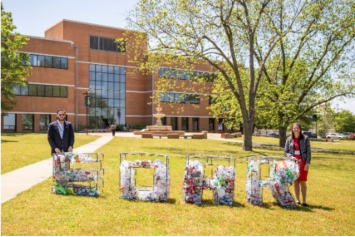
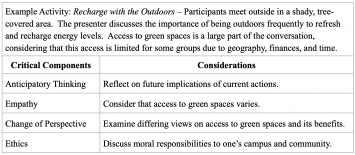
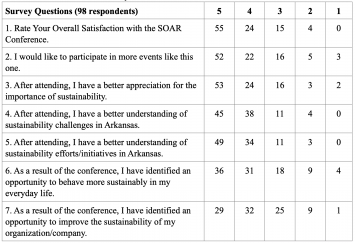
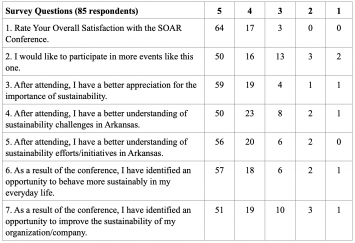
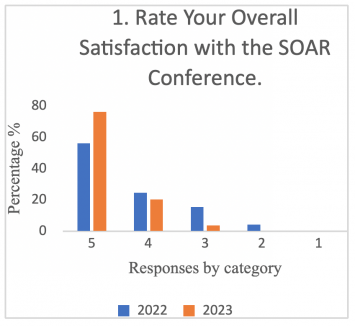
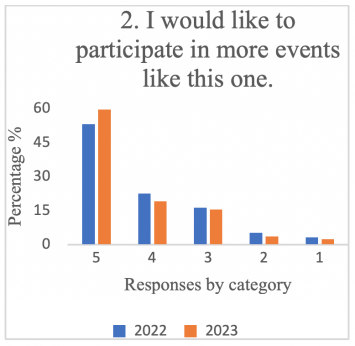
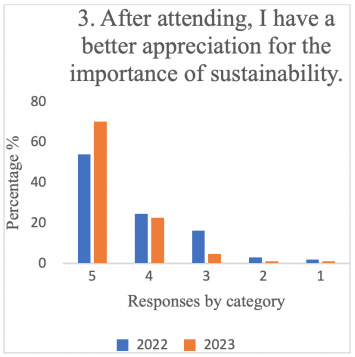
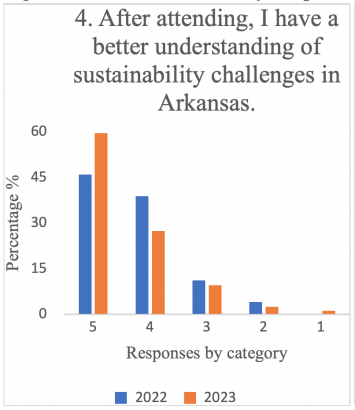
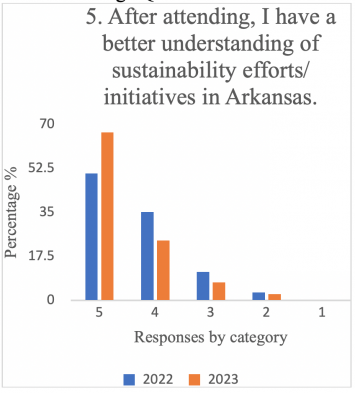
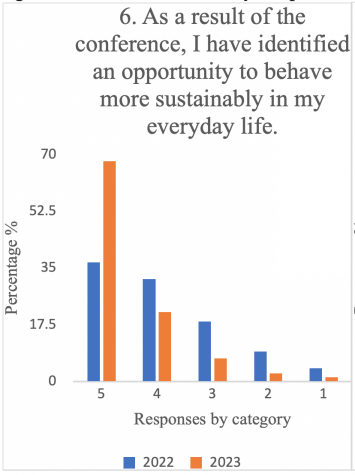
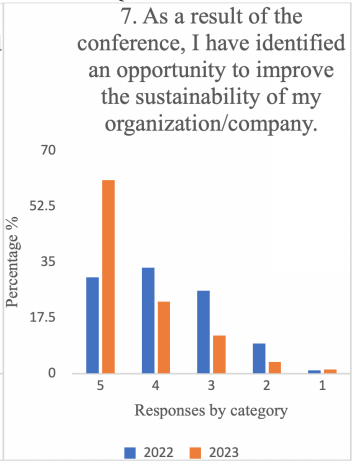



 Dr. Jennifer Logan is the Puterbaugh Professor of Free Enterprise in the Rankin College of Business at Southern Arkansas University. She also serves as the Center Director for Economic Education and Research (CEER) and engages in teacher training and curriculum development in Arkansas. She can be contacted at jllogan (at) saumag.edu.
Dr. Jennifer Logan is the Puterbaugh Professor of Free Enterprise in the Rankin College of Business at Southern Arkansas University. She also serves as the Center Director for Economic Education and Research (CEER) and engages in teacher training and curriculum development in Arkansas. She can be contacted at jllogan (at) saumag.edu.  Dr. Robin Sronce is the Dean and Peoples Bank Endowed Chair in the Rankin College of Business at Southern Arkansas University, where she focuses on adding experiential opportunities to the curriculum and engaging students beyond the classroom. She can be contacted at rksronce@saumag.edu.
Dr. Robin Sronce is the Dean and Peoples Bank Endowed Chair in the Rankin College of Business at Southern Arkansas University, where she focuses on adding experiential opportunities to the curriculum and engaging students beyond the classroom. She can be contacted at rksronce@saumag.edu. 
